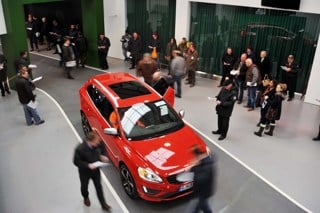Fleet car and van replacement cycles are expected to remain at longer intervals, following extensions caused by supply shortages and the pandemic.
Fleet operators have realised that vehicles had the potential to be operated for markedly longer than had occurred in the past and had learnt a new skillset to enable this to be done economically and efficiently, according to Peter Golding, managing director of FleetCheck.
He said: “Fleets have been hanging onto vehicles for longer either because they didn’t cover many miles during the pandemic or they have simply been unable to source replacements.
“We’ve gone from a situation where generally cars were operated for replacement cycles of three-four years and vans from four-five, to one where around a year has been added on average across the board.”
In some cases, fleet operators have extended their policy for cars from three to five years in a single move
“What has become clear over the last few months is that the fleets with which we work do not seem to view these extensions as a one-off. In the future, they plan to operate vehicles for longer on an ongoing basis,” Golding added.
He explained that there had been two key areas for businesses to consider when looking at the potential for permanent extensions – maintenance and human resources (HR).
Moving beyond a three-year cycle takes most cars and vans beyond the manufacturer warranty, as well as requiring them to undergo an MOT test.
Golding said the longer you operate a vehicle the more potential there is for things to go wrong, therefore fleets should ensure their service and maintenance policies are “watertight”.
There also needs to be consideration given to the impact on not just whole life costs for owned vehicles but monthly rates for leased ones, Golding said.
“Additionally, the HR angle is very particular to each employer but, in some industries and some job roles, it is very much expected that a new car will be provided every three years. At a time when recruitment and retention is markedly difficult, this is genuine issue,” he added.
The arrival of electric vehicles (EVs) on fleets is also playing a role in the process of extending cycles as they suffer less wear and tear than their petrol and diesel counterparts, according to Golding.





















Login to comment
Comments
No comments have been made yet.